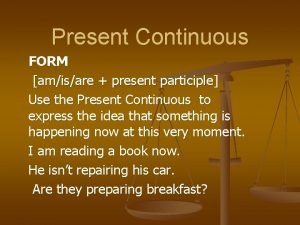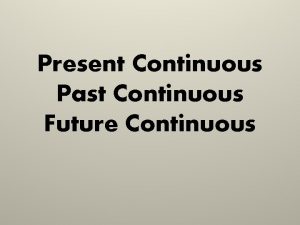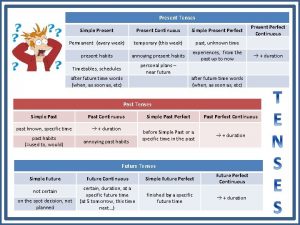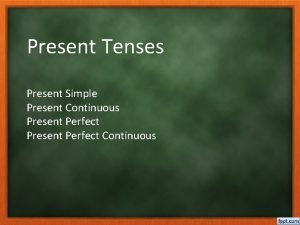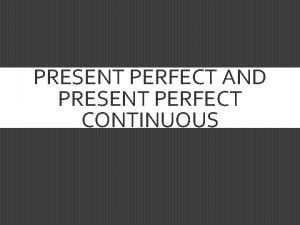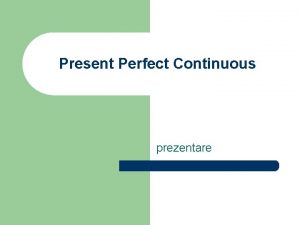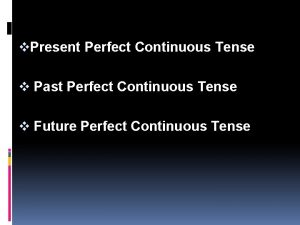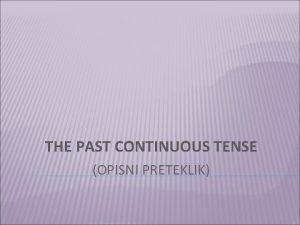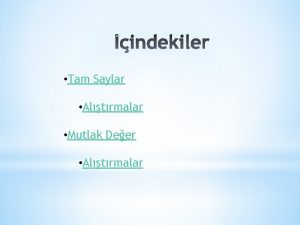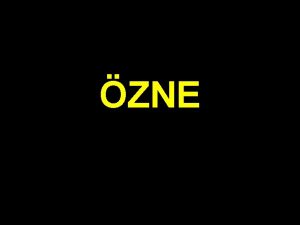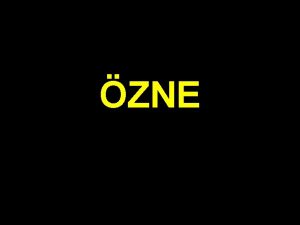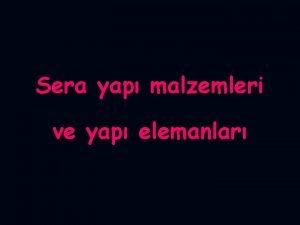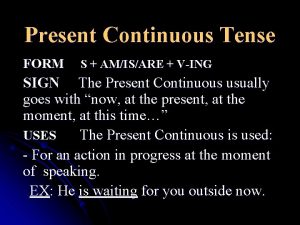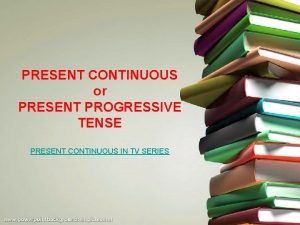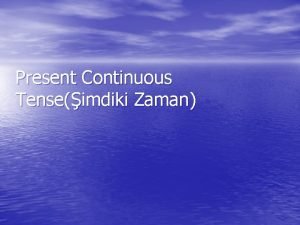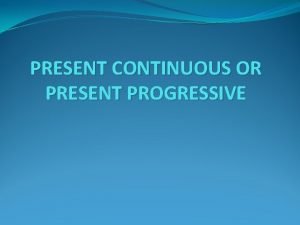Present Continuous Yap Kullanm Altrmalar Yap zne amisare

![Yapı [Özne + am/is/are + Fiil+ing] Örnekler: – You are watching TV. – Are Yapı [Özne + am/is/are + Fiil+ing] Örnekler: – You are watching TV. – Are](https://slidetodoc.com/presentation_image/75b748ec0dda3886c026a1e8f5607e76/image-2.jpg)













- Slides: 15

Present Continuous Yapı Kullanım Alıştırmalar
![Yapı Özne amisare Fiiling Örnekler You are watching TV Are Yapı [Özne + am/is/are + Fiil+ing] Örnekler: – You are watching TV. – Are](https://slidetodoc.com/presentation_image/75b748ec0dda3886c026a1e8f5607e76/image-2.jpg)
Yapı [Özne + am/is/are + Fiil+ing] Örnekler: – You are watching TV. – Are you watching TV? – You are not watching TV. Positive Negative Question I am speaking. You are speaking. We are speaking. They are speaking. He is speaking. She is speaking. It is speaking. I am not speaking. You are not speaking. We are not speaking. They are not speaking. He is not speaking. She is not speaking. It is not speaking. Am I speaking? Are you speaking? Are we speaking? Are they speaking? Is he speaking? Is she speaking? Is it speaking?

Yapı • Şimdiki Zaman - Zaman Zarfları • Present Continuous Tense cümleleri çoğu zaman şu zaman zarflarıyla beraber kullanılır: now, at the moment, today, this evening …etc.

USE 1 • Konuşma esnasında devam eden (ya da etmeyen) olayları ifade etmek için kullanılır. • Örnekler: – – – – – You are learning English now. You are not swimming now. Are you sleeping? I am sitting. I am not standing. Is he sitting or standing? They are reading their books. They are not watching television. What are you doing? Why aren't you doing your homework?

USE 2 • İngilizce’de “şimdi” demekle bazen içinde bulunulan an değil de, içinde bulunulan dönem, gün, yıl vs. kastedilebilir. Dolaysıyla, “şimdi” ibaresini, “şimdilerde” gibi de düşünmemiz gerekebilir. • Örnekler: – – – I am studying to become a doctor. I am not studying to become a dentist. I am reading the book Tom Sawyer. I am not reading any books right now. Are you working on any special projects at work? Aren't you teaching at the university now?

USE 3 • Bazen şimdiki zaman yapısıyla, yakın gelecek zamanda olacak bir eylemden bahsedilebilir. (zaman kayması) • Örnekler: – – I am meeting some friends after work. I am not going to the party tonight. Is he visiting his parents next weekend? Isn't he coming with us tonight?

USE 4 • Bazen şimdiki zaman yapısının içinde “always” ya da “constantly” kullanarak, bahsi geçen eylemden duyulan rahatsızlığı ima etmiş oluruz. • Örnekler: – She is always coming to class late. – He is constantly talking. I wish he would shut up. – I don't like them because they are always complaining.

Note: Non- Continuous Verbs • İngilizcede bazı fiiller şimdiki zaman yapısıyla kullanılamaz. Bu fiiller Türkçe’deki karşılıklarından bağımsız düşünülmeli ve – ing takısı eklenmemelidir. • Örnekler: – She is loving this chocolate ice cream. Yanlış – She loves this chocolate ice cream. Doğru – – He is needing help now. Yanlış He needs help now. Doğru He is wanting a drink now. Yanlış He wants a drink now. Doğru

Non-Continuous Verbs Bu özellikteki bazı fiiller: be, want, cost, seem, need, care, contain, owe, exist, possess, own, belong, like, love, hate, dislike, fear, envy, mind. . .



Alıştırmalar-1: He _____ hard. (to work) He is working hard. We ______ anxious. (to feel) We are feeling anxious. 1. I ________ the questions. (to answer) 2. You ________ boots. (to wear) 3. We _______ for work. (to look) 4. She _______ her friend. (to call) 5. He ________ a house. (to build) 6. They ________ supper. (to cook) 7. We _______ a story. (to tell) 8. You _______ for the bus. (to wait) 9. I ________ a book. (to read) 10. They ________ berries. (to pick)

Alıştırmalar-2:

Alıştırmalar-3: Present Simple vs. Present Continuous 1. At the moment, I _________ supper. (to cook) 2. He ________ the paper every weekday. (to read) 3. We ________ right now. (to study) 4. She ________ every day. (to study) 5. Now it ________. (to rain) 6. They _______ to Mexico every year. (to travel) 7. Just now we ________ the shopping. (to do) 8. She always ________ correctly. ( to answer) 9. You ________ never late. (to be) 10. Now I ________ to the radio. (to listen) 11. Each Sunday, we ________ the flea market. (to visit) 12. At present, I ________ for work. (to look)

References: http: //www. anselluebersetzungen. com/gramex 03. html#9 Puchta H. & Stranks J. (2012) Mind Your English. Cambridge University Press.
 Amisare
Amisare Passive voice表
Passive voice表 Future simple in the past
Future simple in the past Interrupted actions in the past
Interrupted actions in the past Present simple present continuous present perfect
Present simple present continuous present perfect Present perfect present simple present continuous
Present perfect present simple present continuous Present simple present continuous present perfect
Present simple present continuous present perfect Present perfect simple vs present perfect continuous
Present perfect simple vs present perfect continuous Present simple present continuous and present perfect
Present simple present continuous and present perfect Schema present continuous
Schema present continuous Past continuous
Past continuous Present simple past simple future simple
Present simple past simple future simple Present perfect continuous auxiliary verb
Present perfect continuous auxiliary verb What is a past progressive
What is a past progressive Present simple vaje
Present simple vaje Past perfect and past continous
Past perfect and past continous
